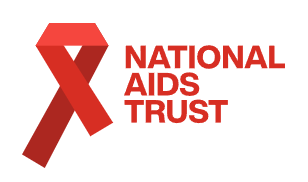Small charities and those representing specific ethnic groups are being locked out of government funding opportunities, a report into criminal justice sector investment is warning.
It found that almost all (94%) statutory funding in the sector goes to charities with an annual income that exceeds £2m, while less than 2% of funding is handed to charities with annual income under £500,000.
One charity representative surveyed for the report said: “These so-called contracts the government put out are aimed for these big organisations… they’ll sub-contract it out and cream off £2,000-3,000 for themselves.
“They’ve got the infrastructure, governance, and ISO standards that these contracts require.’
Also, just 3% of income to criminal justice charities goes to those working with specific ethnic groups, the research found.
Lack of statutory funding opportunities for smaller charities and those focused on ethnic groups is heightened in the criminal justice sector, the research warns, as more than half of its income comes from government sources, compared to round a quarter among the wider charity sector.
The report has been published by think tank New Philanthropy Capital (NPC), which also found “the costs of delivering contracts were not always fully recuperated, leading organisations having to seek funding to cover gaps”.
One survey respondent said: “All of the compliance that the statutory contracts required add to the costs of running the projects, but the contracts are not funding that.
“So, we're finding that we're often almost subsidising some of our grants.”
'Cash flow challenges'
Also, funding is blighted by delays, which is creating “cash-flow challenges for smaller organisations in particular”
“Government funders could be quicker at allocating funding and understanding that small charities need money in the bank before delivery of projects start,” said one charity representative surveyed.
NPC is calling for funders to commit to minimum standards of contracting, including covering the full costs of delivery. They should also “provide more opportunities for flexible and multiyear funding”, said the think tank.
Its report is based on data from more than 600 charities, a survey completed by more than 50 charities working in the criminal justice sector, and interviews with nine charities, five funders and three research and advocacy organisations.
Latest News
-
X-odus sparks video content boom among charities, report finds
-
Charity handed £25m endowment from autistic philanthropist to help others with the condition
-
Civil Society Covenant blighted by delays and U-turns, report warns
-
More than 30 jobs at risk as hospice charity looks to close home care service
-
Cranfield Trust: A guide for charity leaders on navigating local authority devolution
-
Friday funding roundup - 20 February
Charity Times video Q&A: In conversation with Hilda Hayo, CEO of Dementia UK
Charity Times editor, Lauren Weymouth, is joined by Dementia UK CEO, Hilda Hayo to discuss why the charity receives such high workplace satisfaction results, what a positive working culture looks like and the importance of lived experience among staff. The pair talk about challenges facing the charity, the impact felt by the pandemic and how it's striving to overcome obstacles and continue to be a highly impactful organisation for anybody affected by dementia.
Charity Times Awards 2023
Mitigating risk and reducing claims

The cost-of-living crisis is impacting charities in a number of ways, including the risks they take. Endsleigh Insurance’s* senior risk management consultant Scott Crichton joins Charity Times to discuss the ramifications of prioritising certain types of risk over others, the financial implications risk can have if not managed properly, and tips for charities to help manage those risks.
* Coming soon… Howden, the new name for Endsleigh.
* Coming soon… Howden, the new name for Endsleigh.
Better Society

© 2021 Perspective Publishing Privacy & Cookies














Recent Stories